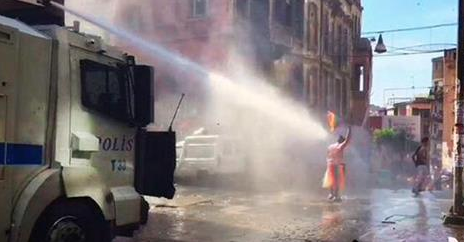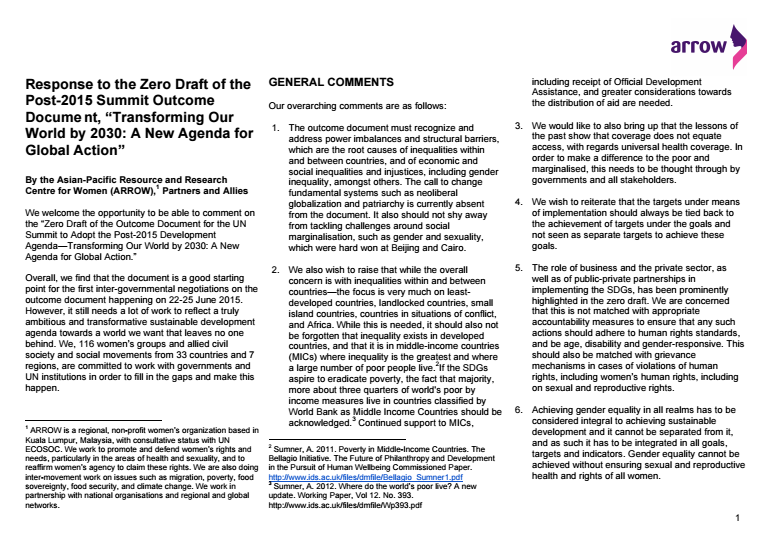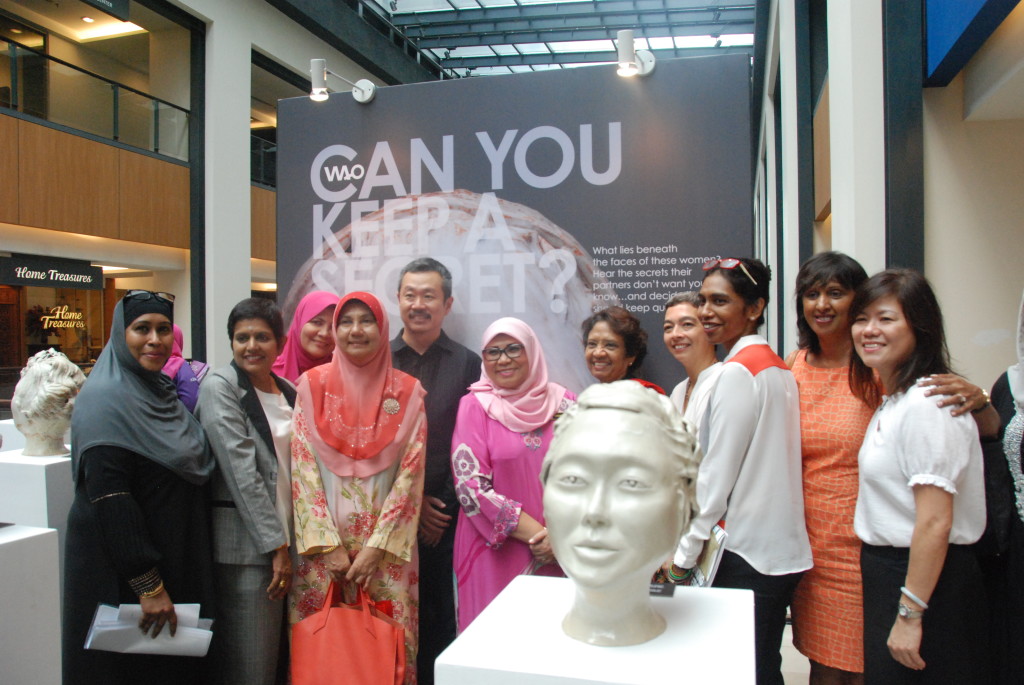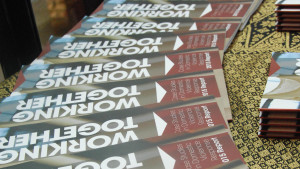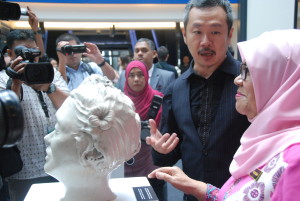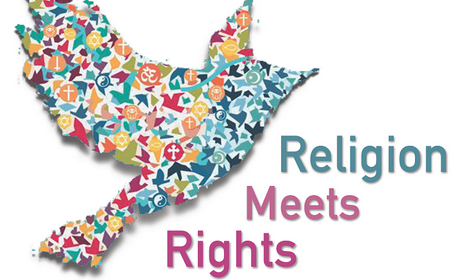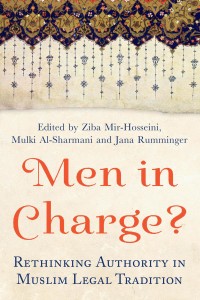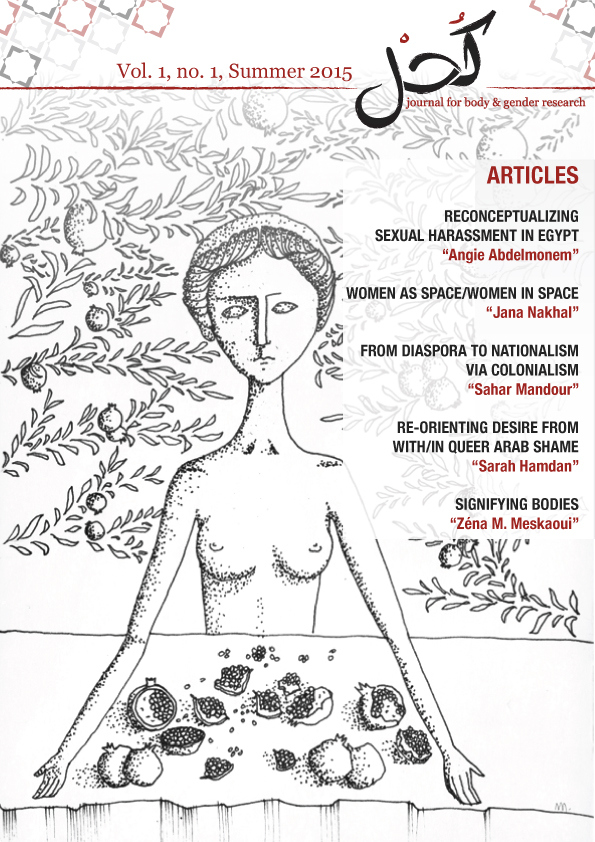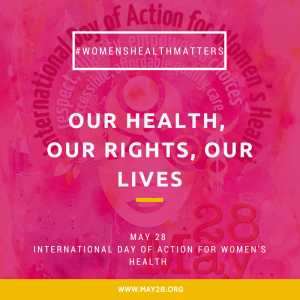6 December 2014
Luavut Zahid is Pakistan Today’s Special Correspondent. Her work places an emphasis on conflict and disasters, human rights, religious and sexual minorities, climate change, development and governance. She also serves as the Pakistan Correspondent to the Crisis Response Journal.
——-
A much needed conversation just got started.
To mark the One Day, One Struggle (ODOS) on 9th November, Drag It To The Top began a series of workshops which focused on human rights and bodily rights. The ODOS workshop, which falls under the umbrella of the Coalition of Sexual and Bodily Rights in Muslim Societies (CSBR), took place at the Institute of Peace & Secular Studies (IPSS) in Lahore.
The workshops can potentially cause an extremely positive ripple effect because they don’t just aim to drum up dialogues and get people talking, it has the ability to break actual stereotypes. It is the result of collaboration between human rights activists Hadi Hussain, Aisha Haleem, Fakhra Hassan and Fatima A Athar.
In a country like Pakistan, focus on these issues is desperately needed and unfortunately rare. The two-hour multilingual workshop had a focus on Urdu as the main language. Through use of participatory theatre and interactive dialogue it tried to create a safe space where a diverse set of people could come together and discuss body acceptance, body positive and fat-positive attitudes. “Audience members were randomly asked to pick a word (a commonly used label or slur for body type/feature or outward appearance) which they then had to communicate to the audience by enacting it. After the audience guessed it, there would be discussion about the connotations, stereotypes and personal experiences of the audience members as a way to motivate us to think about these things as they manifest in our daily lives,” Fatima informed.

“Our purpose behind the format was to facilitate the process of rethinking as well as relearning of the participants where they would be able to realise the whats, whys and hows of body politics,” Hadi informed while explaining the format. “Through this indirect learning methodology, we gave them space to be open enough to share their ideas regarding various body types and appearances and see what effects they have on others. It was an attempt to initiate self-actualisation process where one can recognise the social construction of all such labels,” he added.
The size of the workshop was also kept small on purpose; however, it doesn’t seem as though the group believes in strength in numbers. Fatima elaborated: “We knew from the get-go we didn’t want the ‘standard’ workshop model that divides attendees into teacher and taught, actor and spectator. There’s too much of that going on already!
“Our aim was to encourage critical thought, and for that we came up with a somewhat unusual model. So we kept the pilot workshop small, with attendees from all walks of life but not very many in total, and plenty of room for individual feedback. This was a workshop where the audience was also the teacher, and we wanted to make sure everyone received the time, attention, and safe space needed to draw out their thoughts. We’re thrilled by the response.”
Figuring out the best way to put the workshop together was also a journey for the group. “Initially, I was thinking of putting together a theatrical performance focused on the politics of oppression but then realised that this kind of activity was in danger of becoming one-sided and detached from experiences of daily life,” Fakhra said. “Drag It To The Top has a tradition of following a community-based approach to events that we have been organising since 2012. We believe in capitalising on human experiences and human bondage. Before the event, at the event and after the event, there is no hierarchy between an organiser and a participant,” she added.

The manner in which the workshop functions is inspired by a need to change the way people perceive things, the way they consume information and the way they react to it. “One fine evening, we started talking about the “extreme news” in the media on violence, sexual harassment, murders, honour killings, rape, insanity and other horror stories of life we see in the papers and in our own lives occupied with nationalist and world politics. I thought “Oh my God, look at all the violence around us. We are so desensitised. We see violence and take it as a given, like passive recipients.
“This happens because we hardly find time and space to talk about our own selves. Look at our lives. Have we ever thought about how it affects our bodies and our psyche? Have we ever talked about how we really perceive ourselves and the others in light of all this violence and injustice in the world? Have we taken a stand to do something uplifting for those we care about? Are we really being true to ourselves?” questioned Fakhra.
The initiative is extremely important because people from Pakistan, and South Asia in a larger context, tend to undermine how essential it is to actually create a dialogue around their bodies. Fakhra feels that this has to change. “We usually undermine the importance of talking about our bodies, our perceptions and our feelings unless there is some kind of violation happening, which is quite frequent here anyway. Unfortunately most of us forget to acknowledge that our bodies are political, the very fabric of our being is political and therefore needs looking after and cared for. “I feel, therefore I am” is highly underrated,” she asserted.
And that is where the group also found their muse. “There it was. The talk had to be about body acceptance and body positivity and creating safe spaces for talking about these issues with comfort and ease. We later on settled for enacting body labels to begin with and decided to bring up the issues during the discussion. I think that worked out quite well,” Fakhra explained.
What seemed like just a discussion on labels at the start began to look more and more like an exercise in addressing and breaking stereotypes soon. The workshop was a multifaceted affair. “Although the labels we talked about involved body politics but it’s all about breaking stereotypes and that’s why we developed the idea of having this workshop in the first place. We wanted to question the hierarchical social construction of different body labels which gives a privileged status to a few while downplaying others. We wanted to challenge why the idea of beauty is always associated with being fair skinned, tall and having a toned/slim body. Why can’t a dark skinned, short, and fat person be beautiful?” Hadi asked.

Pakistan can only progress with this kind of a conversation. The fact that it’s taking place under something like the CBSR also ensures that it will be done in a way that does not alienate anyone’s sentiments. Hadi feels that these kinds of initiatives serve the Pakistani society on multiple levels. “The idea of talking about bodies isn’t unique, as we are always commenting about how people look and appear, but yes talking about bodies in a non-stereotypical way, detached from normative depiction, is quite radical,” he excitedly explained.
“On one hand it will create a discourse of questioning and challenging the way people view various body labels while developing a non-judgmental approach of addressing such labels and on the other it will enable individuals to rise above the body shaming or body privilege they have been experiencing in their daily life. This will definitely have a positive impact on the physical and psychological well being of the individuals,” Hadi said.
The initiative has a lot of things on its list of things-to-do. This was just a small taste of what’s to come. “The workshop series’ overall aim is to promote body positivity and acceptance by exploring the intersection between racism, ableism (a pressing issue — consider the recent event where police beat up blind people protesting for their rights on World Disability Day), sexism, homophobia and transphobia,” Fatima explained.
“Since the first step to solving a problem is naming it, the pilot workshop focused on encouraging participants to reveal and discuss their own bias (conscious or unconscious) as well as personal experiences, as part of putting together a critical evaluation of the cultural vocabulary we use to describe, depict, and shape the ways we think about non-normative bodies and the labels those human beings are reduced to: the disabled, the unattractive, the unusual, the different,” she added.
The group plans to hold multiple workshops addressing the same issues in the future. Fortunately, this is just the beginning.
————–
Re-posted from: Pakistan Today
 Indonesia, which included the founding of CSBR member and current coordinating office Gaya Nusantara! Read the article below.
Indonesia, which included the founding of CSBR member and current coordinating office Gaya Nusantara! Read the article below.
